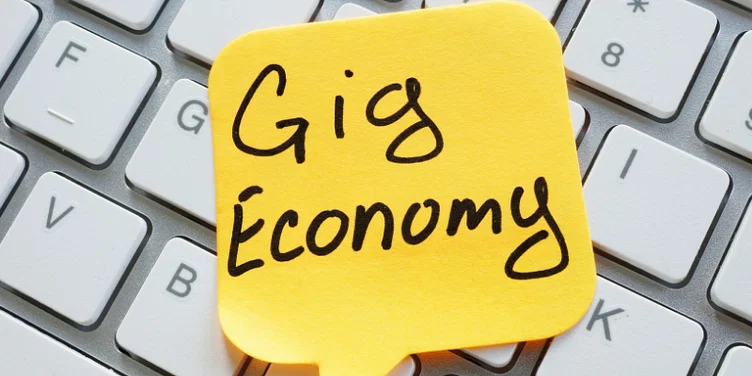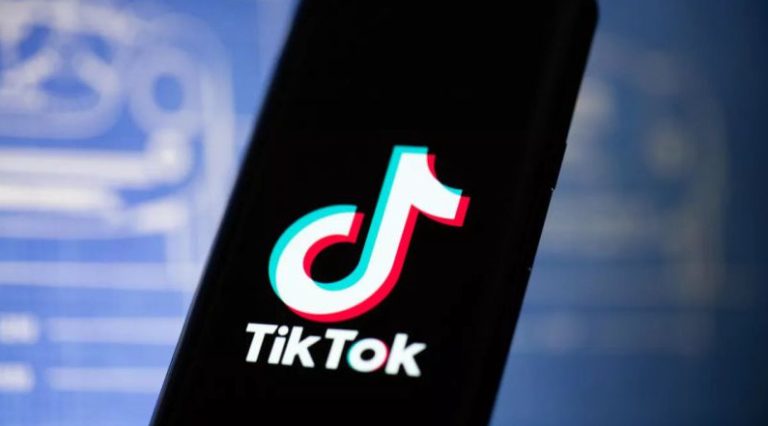How to Balance Gig Economy Work and Personal Life
Introduction
A. Definition of the gig economy
In today’s fast-paced and ever-changing world, the gig economy has emerged as a prominent employment model. With the rise of technology and digital platforms, more and more individuals are embracing gig work as a means of earning a living.
The gig economy refers to a labor market characterized by short-term or freelance positions, where individuals work independently or through online platforms, often on a project-by-project basis.
While the gig economy offers flexibility and autonomy, it also presents unique challenges when it comes to maintaining a healthy work-life balance.
Balancing gig economy work and personal life is essential for overall well-being, job satisfaction, and long-term success. However, gig workers often find themselves facing the constant struggle of managing work demands while also attending to personal commitments and self-care.
One of the primary challenges faced by gig workers is the blurred line between work and personal life.
Unlike traditional employment, gig work often lacks clear boundaries and set working hours. The flexibility can be both a blessing and a curse, as it becomes easy to fall into the trap of overworking and neglecting personal time and relationships.
Additionally, gig workers may face irregular income, variable workloads, and the pressure to constantly secure new projects, further adding to the stress of maintaining a healthy work-life balance.
B. Importance of balancing work and personal life in the gig economy
To successfully balance gig economy work and personal life, it is crucial to implement effective strategies and prioritize self-care. Here are some key approaches to help you achieve a better balance:
First and foremost, it is essential to understand your priorities. Take the time to identify your personal and professional goals.
Assess how your gig work aligns with those goals and make necessary adjustments. Determine your non-negotiables when it comes to personal time and commitments.
By clearly understanding your priorities, you can make informed decisions about the projects you take on and allocate your time accordingly.
Setting clear boundaries is another crucial aspect of maintaining work-life balance in the gig economy. Define your working hours and stick to them as much as possible.
Communicate your availability and limitations to your clients or the platforms you work through.
Establish boundaries for personal time and ensure you avoid work-related distractions during those moments.
It may require discipline and effective communication, but maintaining these boundaries will help create a healthier work-life balance.
Prioritizing And Recognizing
Prioritizing self-care is equally important. Recognize the significance of self-care for your overall well-being. Schedule regular breaks and allocate time for relaxation.
Engage in activities that promote physical and mental health, such as exercise, meditation, or hobbies. Remember, taking care of yourself is not a luxury but a necessity, and it will ultimately contribute to your productivity and success in the gig economy.
Efficient time management is key when juggling gig work and personal life. Plan and organize your work tasks in advance to optimize your time.
Utilize productivity tools and techniques to streamline your workflow. Avoid overcommitting and learn to say no when necessary.
By managing your time effectively, you can avoid burnout and create space for personal activities and relationships.
Delegating and outsourcing tasks that are not your core responsibilities can also help alleviate the burden of balancing work and personal life. Identify tasks that can be delegated or outsourced and utilize freelancers or virtual assistants to handle them.
By focusing on your core strengths and responsibilities, you can free up time for personal pursuits and ensure a better work-life balance.
Building a support network is invaluable when navigating the challenges of the gig economy. Connect with other gig workers for support and advice.
Seek mentors or coaches who can guide you in maintaining balance. Engage with friends and family to maintain a strong support system.
Having a network of people who understand your situation can provide much-needed encouragement and assistance when facing the ups and downs of gig work.
C. Overview of the challenges faced by gig workers in maintaining work-life balance
In a world dominated by technology and constant connectivity, it is essential to disconnect and unplug regularly. Take breaks from technology and digital devices. Avoid constantly checking work-related notifications during your personal time. Create dedicated spaces and times for relaxation and unplugging. By setting aside moments of respite, you can recharge and refocus, ultimately improving your work-life balance.
Lastly, remember that achieving a balanced gig economy work and personal life is an ongoing process. Regularly assess and adjust your approach. Reflect on your work-life balance periodically and make necessary adjustments to your schedule, priorities, and boundaries. Adapt to changing circumstances and continuously strive for improvement.
In conclusion, balancing gig economy work and personal life is a crucial endeavor for gig workers. By understanding your priorities, setting clear boundaries, prioritizing self-care, practicing efficient time management, delegating tasks, building a support network, and taking time to disconnect, you can find a healthier and more sustainable work-life balance.
Remember, maintaining balance is not only vital for your well-being but also for your long-term success as a gig worker.
Finding a healthy balance between gig economy work and personal life can be a challenging task.
With the flexibility and autonomy that gig work offers, it’s crucial to implement strategies that ensure your well-being and satisfaction in both aspects.
In this article, we will explore effective ways to achieve a harmonious work-life balance in the gig economy.
Understand Your Priorities
Identify your personal and professional goals:
To create a balanced life, it’s important to have clarity about your objectives. Take some time to reflect on your personal and professional aspirations. Consider what brings you fulfillment and aligns with your values.
Determine your non-negotiables in terms of personal time and commitments:
Everyone has certain activities or responsibilities that they hold dear. These non-negotiables can include spending quality time with family, pursuing hobbies, or taking care of personal health. Identify what matters most to you and ensure that you protect that time.
Assess how gig work aligns with your priorities and make necessary adjustments:
Evaluate how your gig work fits into your overall life goals. Determine whether it supports your values, allows for personal growth, and provides the financial stability you need. If necessary, make adjustments to your gig work commitments to align better with your priorities.
III. Set Clear Boundaries
Define your working hours and stick to them:
Establishing clear working hours helps create structure and prevents work from encroaching on personal time. Determine the hours that work best for you and communicate them to your clients or gig platforms. Respect these boundaries and avoid the temptation to work outside of those hours.
Communicate your availability and limitations to clients or platforms:
Open and honest communication is crucial for maintaining a healthy work-life balance. Let your clients or gig platforms know about your availability and any specific limitations you have. Clearly articulate your boundaries and expectations to manage workloads effectively.
Establish boundaries for personal time and avoid work-related distractions during that time:
When it’s your personal time, ensure that you prioritize it and avoid work-related distractions. Put your phone on silent or use apps that limit notifications during designated personal hours. Create physical boundaries by setting up separate spaces for work and leisure to help reinforce this division.
Prioritize Self-Care
Recognize the importance of self-care for overall well-being:
Self-care is essential for maintaining a healthy work-life balance. Acknowledge that taking care of your physical, mental, and emotional well-being directly impacts your productivity and satisfaction in both work and personal life.
Schedule regular breaks and time for relaxation:
Intentionally incorporate breaks and relaxation into your schedule. Step away from work to recharge and rejuvenate. Whether it’s a short walk, meditation, or engaging in a hobby, these breaks can enhance your focus and energy when you return to work.
Engage in activities that promote physical and mental health:
Make time for activities that promote your physical and mental well-being. Exercise regularly, eat nutritious meals, get enough sleep, and engage in activities that bring you joy.
Nurturing your overall health will help you thrive in both your work and personal life.
By understanding your priorities, setting clear boundaries, and prioritizing self-care, you can strike a balance between gig economy work and personal life.
Remember, maintaining this balance requires ongoing evaluation and adjustments as your circumstances change. Embrace the flexibility of the gig economy while ensuring that your well-being remains a top priority.
Efficient Time Management
Plan and organize your work tasks in advance:
Firstly, one of the most effective ways to manage your time in the gig economy is by planning and organizing your work tasks in advance.
Create a schedule or to-do list that outlines your daily, weekly, and monthly tasks. Prioritize your assignments based on deadlines and importance.
By having a clear roadmap of what needs to be done, you can allocate your time effectively and avoid feeling overwhelmed.
Use productivity tools and techniques to optimize your time:
Secondly, take advantage of the numerous productivity tools and techniques available to optimize your time in the gig economy.
Utilize project management software, task management apps, and calendar tools to streamline your workflow and stay organized.
Experiment with time management techniques like the Pomodoro Technique or time blocking to boost your productivity and maintain focus during work hours.
Avoid overcommitting and learn to say no when necessary:
Thirdly, one common pitfall in the gig economy is overcommitting oneself.
While it may be tempting to take on every opportunity that comes your way, it’s essential to evaluate your capacity realistically. Be mindful of your time limitations and workload.
Learn to say no when necessary to prevent burnout and maintain a healthy work-life balance. Focus on quality over quantity to deliver exceptional results and avoid spreading yourself too thin.
Delegate and Outsource
Identify tasks that can be delegated or outsourced:
To free up more time for your personal life, identify tasks within your gig work that can be delegated or outsourced. Analyze your workload and determine which activities can be handled by others without compromising the quality of your work.
Administrative tasks, research, or repetitive assignments can often be assigned to freelancers or virtual assistants, allowing you to focus on your core strengths and responsibilities.
Utilize freelancers or virtual assistants to handle non-core activities:
Firstly, take advantage of the gig economy itself by hiring freelancers or virtual assistants to handle non-core activities. Platforms such as Upwork, Fiverr, or TaskRabbit provide access to a diverse pool of talent for various tasks.
By outsourcing time-consuming or less critical tasks, you can allocate more time to important work or personal commitments, ultimately achieving a better work-life balance.
Focus on your core strengths and responsibilities:
In the gig economy, it’s crucial to focus on your core strengths and responsibilities.
By concentrating on what you excel at and what brings you the most value, you can optimize your time and energy. Outsource or delegate tasks that lie outside your expertise or that you find particularly draining.
This enables you to deliver higher-quality work and devote more attention to personal activities that bring you joy and fulfillment.
VII. Establish a Support Network
Connect with other gig workers for support and advice:
Furthermore, building connections with fellow gig workers can provide valuable support and advice.
Engage in online communities, social media groups, or forums specifically designed for gig workers. Share your experiences, seek guidance, and learn from others who face similar challenges.
Connecting with like-minded individuals can foster a sense of belonging and provide a support system that understands the unique dynamics of the gig economy.
Seek out mentors or coaches who can guide you in maintaining balance:
Moreover, mentors or coaches who have experience in the gig economy can be invaluable in helping you maintain a healthy work-life balance.
Reach out to professionals who have successfully navigated the gig economy and seek their guidance.
They can offer insights, share strategies, and provide support to help you find equilibrium in your professional and personal pursuits.
Engage with friends and family to maintain a strong support system:
Lastly, don’t underestimate the power of your existing support system. Engage with your friends and family to maintain a healthy work-life balance.
Communicate your challenges and needs to your loved ones and seek their understanding and encouragement. Spend quality time with them, nurturing your personal relationships and creating a support network that extends beyond the gig economy.
By implementing efficient time management techniques, delegating non-core tasks, and establishing a strong support network, you can strike a balance between your gig economy work and personal life.
Remember, achieving a sustainable work-life balance requires ongoing effort and adjustment.
Prioritize your well-being and happiness as you navigate the gig economy, and don’t hesitate to make changes when necessary.
In addition, in today’s gig economy, where more and more people are opting for flexible work arrangements, finding a balance between work and personal life can be a challenge.
However, it is crucial to prioritize this balance to ensure long-term success and well-being.
In this section, we will explore two important strategies for achieving work-life balance in the gig economy: disconnecting and unplugging and regularly assessing and adjusting.
VIII. Disconnect and Unplug
Take regular breaks from technology and digital devices
In the digital age, it’s easy to become constantly connected to work through our devices. To maintain a healthy work-life balance, it is essential to take regular breaks from technology.
Designate specific periods during the day when you disconnect from your devices and focus on personal activities.
This can be as simple as setting aside an hour each evening to engage in hobbies, spend quality time with loved ones, or engage in activities that promote relaxation and personal well-being.
Avoid constantly checking work-related notifications during personal time
When you’re engaged in personal activities or spending time with family and friends, it’s important to resist the temptation to constantly check work-related notifications.
Constant interruptions from work can disrupt your personal time and make it difficult to fully disconnect.
Set clear boundaries and communicate to clients or platforms about your availability during specific hours. By doing so, you can ensure that your personal time remains undisturbed and uninterrupted.
Create dedicated spaces and times for relaxation and unplugging
To achieve a healthy work-life balance, it is beneficial to create dedicated spaces and times for relaxation and unplugging.
Designate specific areas in your home where you can unwind and engage in activities that help you recharge. It could be a cozy reading nook, a meditation corner, or a place to pursue your hobbies.
Additionally, establish specific times during the week when you completely unplug from work-related tasks and obligations.
This will provide you with the opportunity to disconnect mentally and emotionally, allowing you to fully enjoy your personal life.
Regularly Assess and Adjust
Reflect on your work-life balance periodically
To maintain a healthy work-life balance, it is important to regularly reflect on your current situation. Take the time to assess how well you are balancing your gig work and personal life. Reflect on your feelings of fulfillment, stress levels, and overall well-being. Are you spending enough quality time with your loved ones? Are you dedicating sufficient time to self-care and personal pursuits? By regularly reflecting on these aspects, you can gain valuable insights into areas that may require adjustment.
Make necessary adjustments to your schedule, priorities, and boundaries
Based on your reflections, identify areas where adjustments are needed. This may involve reevaluating your work schedule, setting new priorities, or redefining boundaries. If you find that work is taking up too much of your personal time, consider reducing your workload or renegotiating your contracts.
It may also be helpful to delegate or outsource certain tasks to free up more personal time. Be proactive in making the necessary adjustments to ensure a healthy work-life balance.
Continuously strive for improvement and adapt to changing circumstances
Achieving work-life balance is an ongoing process. Circumstances change, priorities shift, and new challenges arise. It is important to continuously strive for improvement and adapt accordingly. Regularly reassess your situation and make adjustments as needed.
Be open to trying new strategies and approaches to find what works best for you. Remember that work-life balance is not a one-time achievement, but rather a dynamic state that requires continuous effort and adaptation.
Conclusion
Balancing gig economy work and personal life is essential for long-term success and well-being.
By disconnecting and unplugging regularly, you can create boundaries that allow you to fully engage in personal activities without the constant intrusion of work.
Additionally, regularly assessing and adjusting your schedule, priorities, and boundaries will help you maintain a healthy work-life balance.
Implement these strategies and take proactive steps towards achieving the desired balance in your life. Prioritize your well-being and strive for success in both your professional and personal endeavors.





